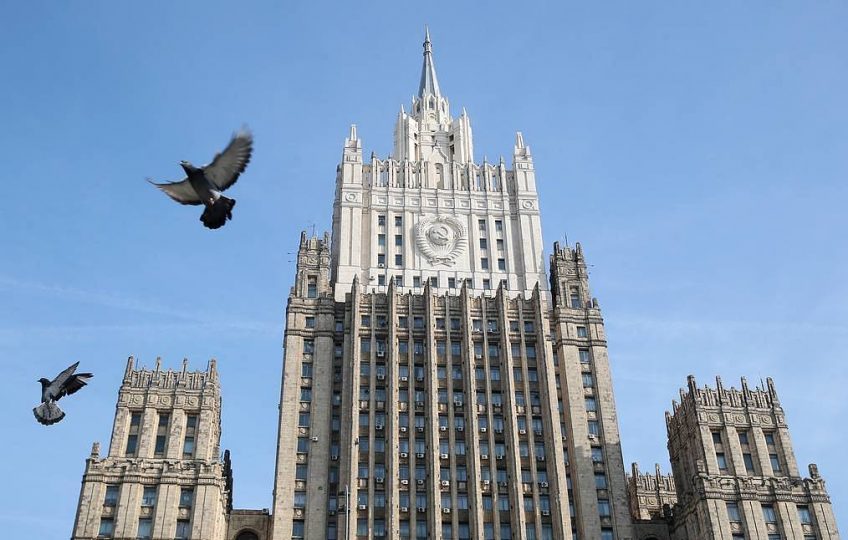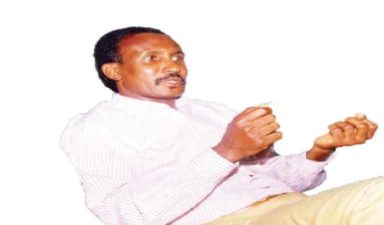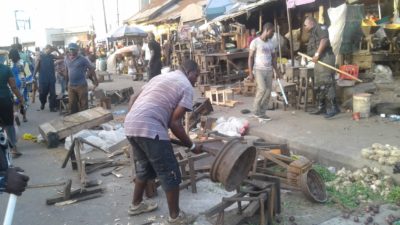Russia calls on other states to abide by the logic sealed in documents for preventing a nuclear war and strictly follows the principle that such a conflict is inadmissible, Director of the Foreign Ministry’s Department for Non-Proliferation and Arms Control Vladimir Yermakov told TASS on Saturday.
“All states should consistently abide by the logic laid out in joint documents of the Nuclear Quintet with our most active participation, including the January statement by the leaders of the five states on preventing a nuclear war,” the high-ranking Russian diplomat said.
“It is imperative to reaffirm the principle that the risks of a nuclear war that must never be unleashed must be minimized, in particular, by way of preventing any armed conflict between nuclear powers. Russia strictly abides by this principle,” he emphasized.
West’s escalation of anti-Russia actions
The West should grow aware, considering all dangers in the nuclear sphere, that anti-Russian escalation is totally inadmissible, Yermakov said.
“Speaking about dangers emerging in current conditions, I would like to note that it would be useful for US-led Western countries gripped by unprecedented Russophobia to remain clearly aware that the irresponsible escalation of their anti-Russian actions is totally unacceptable,” he said, responding to a question about the existing dangers of the use of nuclear weapons in the world.
West’s proxy wars against Russia
The West has openly chosen the strategy of conducting proxy wars against Russia and this policy is fraught with very serious consequences, he pointed out.
At present, the Western nuclear troika made up of the United States, France and Great Britain is increasingly departing from the principles of the inadmissibility of a conflict between nuclear countries “alongside the whole of NATO, which is positioning itself as a nuclear alliance,” the senior Russian diplomat said.
“These countries have openly chosen the strategy of conducting proxy wars against Russia. Such brinkmanship is fraught with very serious consequences,” he warned.
10th NPT review conference
Russia has launched preliminary preparations for its participation in the 10th review conference of the states that are parties to the Treaty on the Non-Proliferation of Nuclear Weapons (NPT) that will run in New York on August 1-26, Yermakov told TASS.
“The dates and the venue of holding the 10th NPT Review Conference have been defined: it will take place in New York on August 1-26. Our delegation has begun preliminary measures for its participation in the conference. As one of the NPT depositary states, Russia intends to take all efforts for this forum to be a success,” the high-ranking diplomat said in response to a corresponding question.
Russia-US interaction on accords to replace New START
Russia-US discussions on some accords to replace the Strategic Offensive Arms Reduction and Limitation Treaty (New START) are out of agenda as the United States has interrupted interaction under the pretext of the situation in Ukraine, Yermakov said.
“It is currently hardly possible to speak about elaborating some new accords to replace the New START. Let me remind you that as part of the strategic dialogue with the United States, we put forward a proposal on working out some new ‘equation of security’ that would take into account all the factors affecting strategic stability in their interrelation. By promoting this approach, we proceeded from the fact that it would help create pre-requisites for a constructive dialogue and eventually, possibly, for drafting specific accords,” the senior Russian diplomat said.
“However, the Americans interrupted this interaction under the pretext of developments around Ukraine. We took note of this,” he said.
Russia-US interaction on New START
Russia’s interaction with the United States in the bilateral consultative commission on the New START Treaty continues and the sides consider issues remotely via diplomatic channels, Yermakov said.
“In any case, interaction in the commission does not cease and arising issues are examined remotely via diplomatic channels,” the senior Russian diplomat said.
Geneva no longer acceptable as venue for bilateral commission on New START
Geneva as a venue for the bilateral consultative commission on the New START is no longer acceptable for Moscow, considering the Swiss government’s unfriendly acts towards Russia, Yermakov told TASS.
“At the beginning of the year, Russian and American representatives began preparations for the next session of the bilateral consultative commission; however, difficulties emerged with regard to determining the dates of the encounter and it was put off by mutual consent. This issue can be addressed later. Meanwhile, the Americans have already been informed that Geneva as a venue for sessions of the bilateral consultative commission is no longer acceptable for us, considering the Swiss government’s unfriendly acts towards our country and its leadership,” the senior diplomat said.
US bio lab activity
The activity of US bio labs in the post-Soviet space remains out of control due to Washington’s position, Yermakov told TASS.
The Pentagon has been mass building and modernizing microbiology facilities in many former Soviet republics under the guise of rendering sanitary and epidemiological assistance, the senior Russian diplomat pointed out.
“In view of the absence of a verification mechanism under the Convention on the Prohibition of Biological and Toxin Weapons whose elaboration the United States has been torpedoing since 2001, the procedure and the extent of drawing these facilities into secret research programs of the US defense agency cannot be controlled,” he stressed.
Russia will send an invitation to some American officials, including Under Secretary of State Victoria Nuland, to a session of the parliamentary commission investigating the activity of US biological laboratories in Ukraine, Yermakov said.
“An invitation to American officials and representatives of companies who have relation to military biological activity being conducted in bio labs in Ukraine with the US assistance is being prepared to be dispatched. In particular, there are plans to call Senior Under Secretary of State Victoria Nuland as one of the witnesses to a session of the parliamentary commission of the Russian Federal Assembly investigating such activity,” the high-ranking Russian diplomat said.
US plans to deploy missiles in Europe, Asia-Pacific
The deployment of US land-based intermediate-and shorter-range missiles in Europe and the Asia-Pacific region will further escalate the situation and whip up an arms race, Yermakov told TASS.
“The United Sates does not conceal its intention to complete as soon as possible a whole number of other projects for creating land-based intermediate-and shorter-range missiles for their subsequent deployment in Europe and the Asia-Pacific region. The deployment of these armaments in the above-mentioned regions will further escalate the situation and whip up an arms race,” the high-ranking Russian diplomat said.
AUKUS pact
The plans of the trilateral defense partnership between Australia, the United Kingdom and the United States (AUKUS) in the missile sphere will impair international and regional security, Yermakov told TASS.
“As for the countries that have formed the AUKUS pact, they already announced their plans earlier to interact in the missile sphere and their implementation will certainly complicate the situation with regard to international and regional security,” the senior Russian diplomat said.
The plans of the trilateral defense partnership between Australia, the United Kingdom and the United States (AUKUS) in the sphere of hypersonic armaments raise questions about the tasks and scope of the deployment of these systems, he said.
“By itself, the creation of hypersonic armaments does not contradict any international treaties. However, in each particular case, questions arise about the tasks that these systems are being developed for, the regions and the scope of their deployment,” the senior Russian diplomat said.




